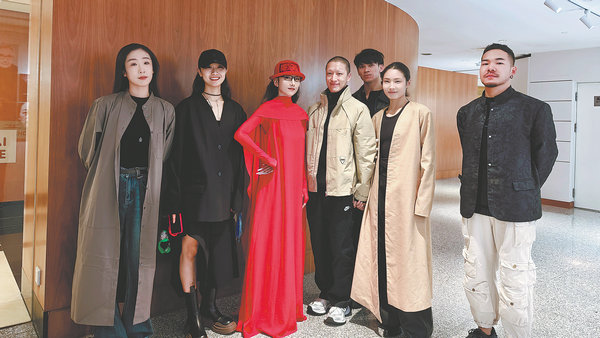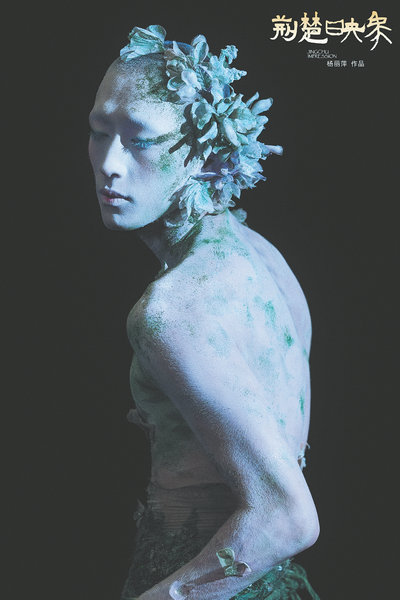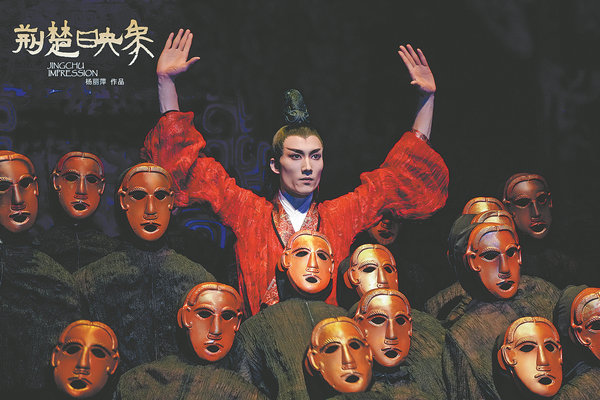

With renowned veteran dancer-choreographer Yang Liping as the chief director, the epic dance play Jingchu Impression made its Shanghai debut on Oct 30 at the Shanghai Grand Theatre during the 23rd China Shanghai International Arts Festival, offering audiences an immersive experience of the profound Chu culture.
Jingchu generally refers to the current region of central China's Hubei province known for Chu culture, a critical part of Chinese civilization that thrived over 2,000 years ago.
The patriotic poet Qu Yuan, who lived around 340 to 278 BC, is an iconic figure in Chu culture and one of the greatest poets of ancient China. Qu also serves as the thread of the dance play that connects its four chapters named after Qu's classic poems — Tian Wen (Heavenly Questions), Jiu Ge (Nine Songs), Li Sao (On Encountering Sorrow) and Ju Song (Ode to An Orange Tree).
Focusing on several mythological figures inspired by Qu's poetry anthology Chu Ci, as well as real historical heroes, the play follows Qu's life experiences and presents mysterious, romantic, impassioned and love-hate stories during the Chu state from the Warring States Period (475-221 BC).
"Yang is dedicated to telling China's stories and showcasing Chinese culture with her stage performances. This play is the first of its kind in China to stage the brilliant Chu culture, with young dancers injecting new vitality. We believe it will bring audiences closer to the enduring charm of traditional Chinese culture," says Li Ming, president of the center for the arts festival.

Working with Yang, young dancers such as Dong Chonghan and Cheng Peiying are presenting classical figures with their innovative expressions.
Dong performs as a spirit of the mountain inspired by one of Qu's poems titled Shan Gui (The Mountain Spirit). The spirit is usually regarded as a female but Dong saw the figure as a pure fairy, blurring its gender. As a male performer in this role, Dong has been well-received by audiences.
Cheng presents the eye-catching Phoenix to her own advantages. "I was told that my shoulders can open quite wide and it became my strength to make my Phoenix look different from others."
Yang agrees: "To perform a classical role accurately is not only about the dance or body movement but is more about integrating the dancer with the character in mindset. The dancer needs to learn the role's personality, behavior and soul to naturally become it and present it."

In addition to dancers, the production team has made great efforts in costume design, stage sets, musical arrangements, lighting effects and more, in a bid to offer audiences both audio and visual feasts.
Elements of bianzhong, or bronze chime bells, an ancient instrument symbolizing Chu culture, can be found onstage and in the music. It is worth noting that the play also combines other traditional forms of art, such as Chinese operas and shadow puppetry.
"I would like to extend my gratitude to the many artists working together to present the dance play. We hope Jingchu Impression can refresh the audience's memories of Chu culture, remind them of the past and the noble characters that we have to remember, and eventually, help us to better live in the moment and keep exploring," says Yang.